Living in a world not of our own making — etc.
The digest: including postcards from KL + an old letter about people watching in Dubrovnik during the pandemic + readings + joy, wherever it is found.
However you found your way here, welcome! I’m Emily, and I write letters about how we seek and tell stories to make sense of a changing world and our place in it.
Driving in KL one late afternoon, weaving around doubled-parked streets flanked by malls and restaurants and bars, I took a wrong turn and surfaced onto this hushed road crowded in by trees and bushes made iridescent by the sun. It felt like I had suddenly been transported to the country. We slowed right down, pausing to ooh and ahh and try to capture the same light in different pictures, before finding our way back onto the grid...
New letter on Abang Adik:
Living in a world not of our own making
But this is a movie, and we get to see this side of Adik. It reminded me again of the gap fiction can fill in telling the stories of those marginalized by state and society: it lets us imagine another person’s emotional reality. We’ve been reading the news, we’re all aware of the ever-deepening inequality that is a feature, not just a byproduct, of our times; there is nothing about the material realities in Abang Adik we don't already know. But a movie, with characters of complexity, can make you feel. It jolted me into pausing, once again, to pay attention to the injustice people like Abang and Adik struggle against. As with so many of the world’s problems, I think it’s not so much new facts or new developments that we need, as the news cycle often demands, but reminders of what we already know, so our hearts don’t stay complacent for too long, so that we are galvanized again to speak or act in support of those who need it, in whatever humble way we can, when the next occasion calls for it.
From the archive:
An old city by the sea #2
“Please,” he said, pressing his palms together when he got to us. “Please. When you want to go, please come to me.”
He was soft-spoken and hustled without the air of a hustler. I hated to see someone being forced to do this. We told him yes, we would come and find him when we eventually make a decision. But the price for renting a private boat is steep. And since then, fearing we would have to pass on his offer again, my heart has felt a little heavier every time we meandered too close to his booth. Every time, I hoped we wouldn’t see him or his boat. If we didn’t, maybe it would mean he had managed to find some customers that day.
Then, one night two weeks ago, as we sat in the back terrace of the same cafe we’re at now, looking over the old port: I saw his slim white vessel, looking like a silverfish in the flickering glow of the streetlamp besieged by frenzied moths. On another evening, enjoying the breeze by himself, he had waved to us with a silent smile. But tonight, he wasn’t alone. He was having a tête-à-tête with a long-haired blonde in the open rear of his floating home.
At some point, he stretched out to lay his head in her lap, and I felt a rush of joy for him. I hoped that whatever his current difficulties in this pandemic, this seaman was enjoying a moment of peace. (Or perhaps a quickening heartbeat 🩵)
Readings, etc.
1./ In January, I joined a coffee tasting and brewing workshop by Jeffrey Lim, who documents old trades in Malaysia that have been overlooked, in part because they have been so much a part of our everyday. He is interested in the heritage of our local kopi across peninsular Malaysia—how we make it, how we drink it, with what tools. He gets right down to the most granular details, but it’s the little insights into the history, such as that of the traditional ceramic cups kopi is still being served in across the country’s kopitiams, that feel most resonant. Follow @kopilau for a project still in progress.
2./ The Russian dissident Alexey Navalny died in prison recently—widely believed, by Putin’s hand. I don’t doubt that Putin is capable of murder, but because of what’s happening in Palestine, I cannot help but see Joe Biden’s publicized sitdown with Navalny’s wife and daughter as a PR move that fits into the United States’ seemingly binary view of the world, of good guys vs. bad guys. As we have seen in recent months, there are no good guys and bad guys, just good and bad deeds any government, any people, are capable of. Still, I found Navalny’s story quite inspiring—that he still returned to Russia after being poisoned by Novichok, when he must have known he would be jailed or that another attempt would be made on his life. It’s not a choice most of us would ever make if we had a family, but to “figure” in this world I think you do have to be at least a little bit self-aggrandizing, and the man certainly had charisma and had already amassed a following with his YouTube channel exposing corruption in Russia. My partner W.C. is always slightly suspicious of leaders who are popular because they are “cool”; what matters is what they actually do. But it does feel, especially these days, like it’s star power that most effectively boosts popular attention to the nitty gritty of political issues. And Daniel Roher’s documentary Navalny, which couldn’t have been produced without Navalny’s own sleuthing, does lionize him some. It sometimes feels like Navalny, a kind of journalist himself (albeit one transparently motivated by political self-interest: to unseat Putin), is steering the camera’s gaze when he’s ostensibly the subject. The documentary is worth a watch to appreciate that tension as well as the gleeful chutzpah with which he succeeded in pranking one of his poisoners into a confession.
3./ Honestly, I have a harder time listening to texts; I read them much better. Sometimes when I don’t have subtitles on a film I have to rewind parts to better absorb what was said. I can’t get the most out of a podcast or audiobook unless I’m intentionally training my focus on it—or driving on long trips. But I’m trying to listen better. These days I try to get through a chapter before bed, though I’m usually out before my sleep timer is up 😅 Still, I love listening to a story, especially a story that has an aura of mystery (though a voice narrator that doesn’t jive at all with the voice I imagine can be jarring, or if an unsympathetic character sounds as grating as they come across on the page), so dystopian, fantasy, or detective stories work really well for me. Currently, I’m alternating between John Wyndham’s The Kraken Wakes (there’s also a dramatized version but I think I prefer non-dramatized ones) and Agatha Christie’s Passenger to Frankfurt.
4./ Went to cheer on a lawyer-turned-author friend, Kimberly Lee, as she celebrated the publication of her first book of fiction for kids—illustrated by Charlene Chua—with an engaging reading+singing session. Boys Don’t Fry challenges gender norms and celebrates her family’s Peranakan culture 🩵

5./ Harper’s is a magazine I subscribe to in print. I usually find it thought-provoking and love being able to read it from cover to cover—a more coherent act than jumping from tab to tab. I particularly like the regular Easy Chair column—by Lionel Shriver for a time (“Semantic Drifts” was one of my favorites), then more recently Rachel Kushner (“The Palm at the End of the Mind”). There’s also a fascinating essay on the climate case against children by Elizabeth Barber, of which, in the end, she is skeptical: “people would rather be enthusiastic collaborators in a global project than be skeptics of its fundamental integrity.”
Note: I’m trying to reorient my reading around deeper troves of things, to wrest back control over my attention. I don’t generally curate shorter standalone pieces here anymore (as in Landmarkings), and now share them instead on Instagram Stories @emilydingwrites - shares on Israel and Palestine go there too.
Joy is not a crumb
Went lindy hop-ping again recently! I love dancing and I love to watch people dance! I used to go for lessons and socials when I was still in London, but I haven’t done that for years, and this was my first time back at it in a long time. Here’s one of my favorite songs to dance to. It’s cheeky and funny, listen:
And I leave you with
That’s how the big one siestas 😆 It’s disarming, how trusting she looks in her sleep, and I can’t help thinking: That’s something strays can’t afford to be…
Until the next,
E.




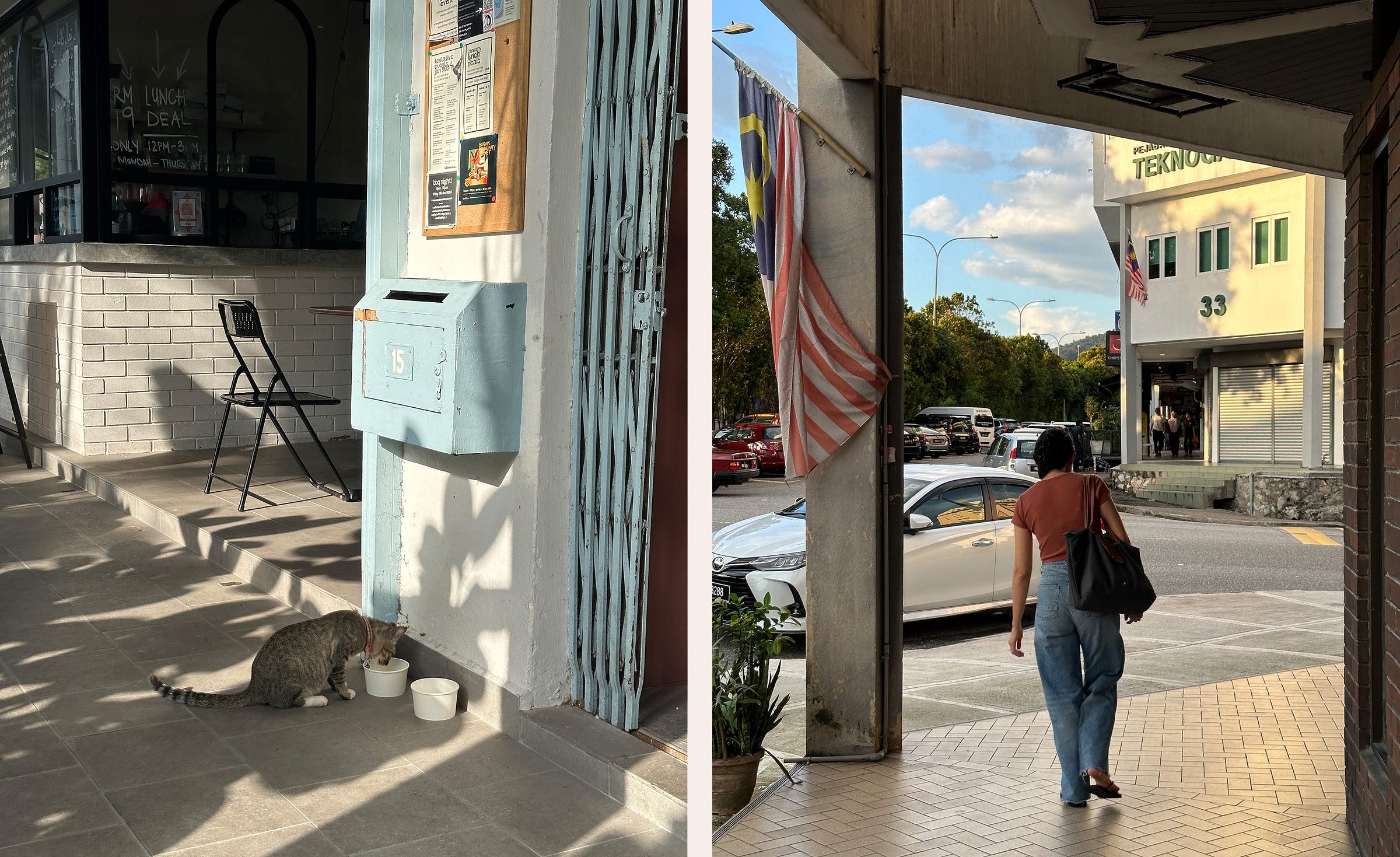
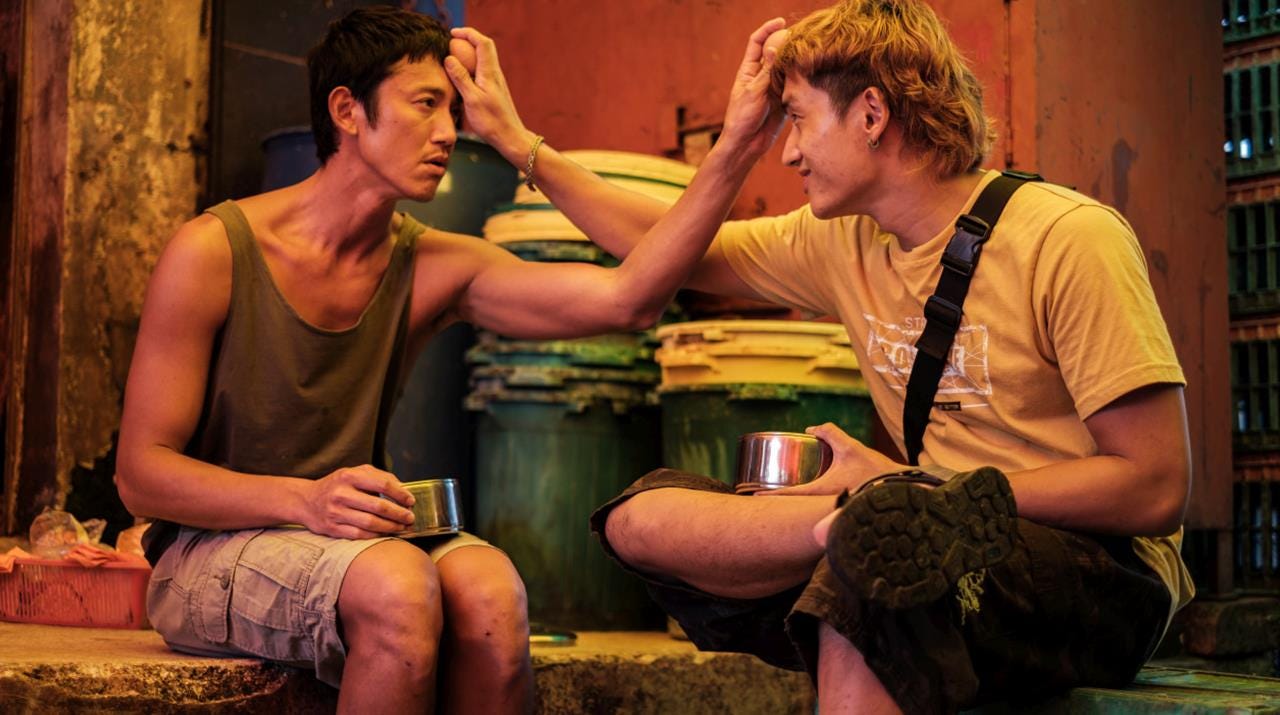
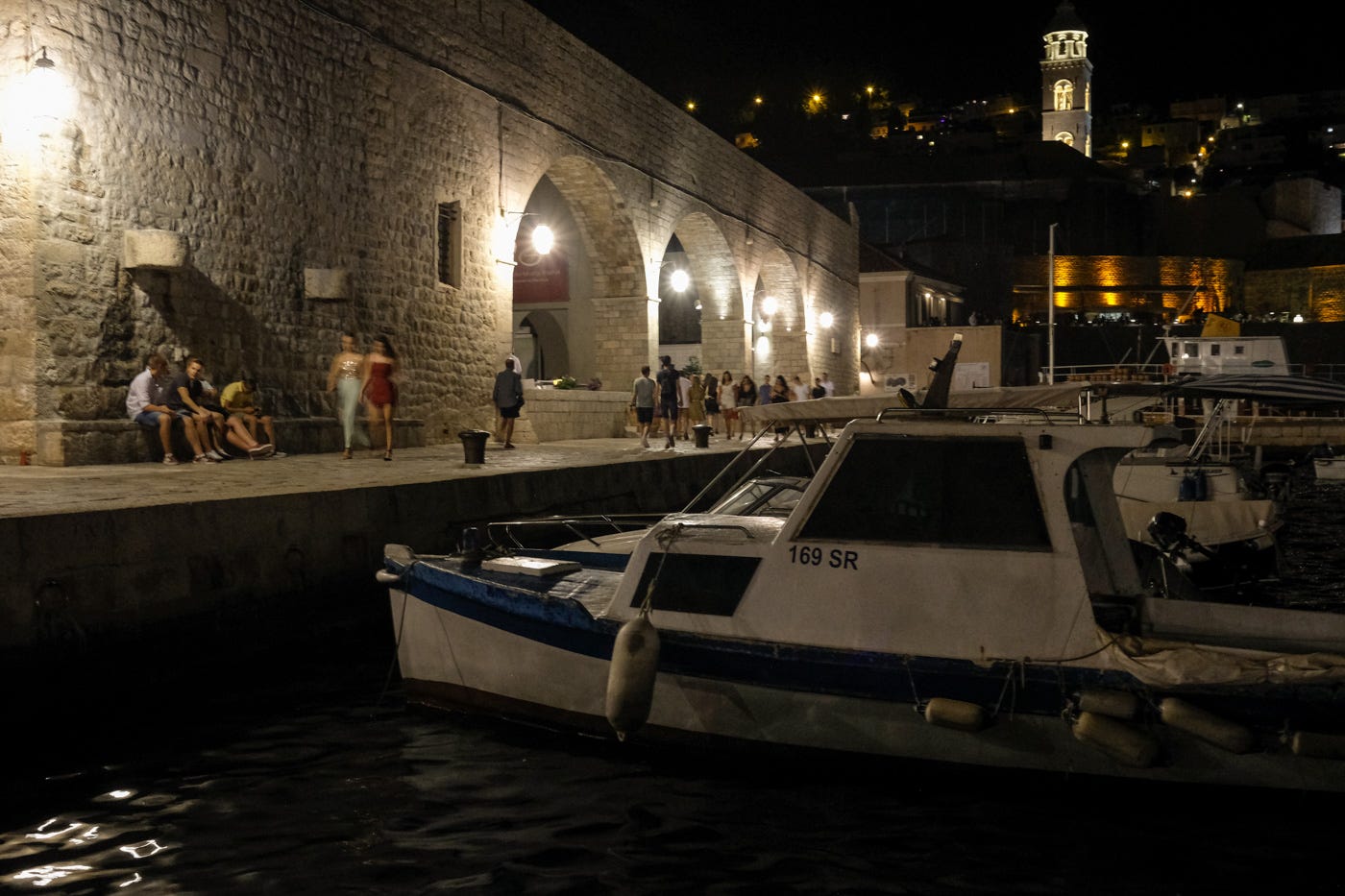
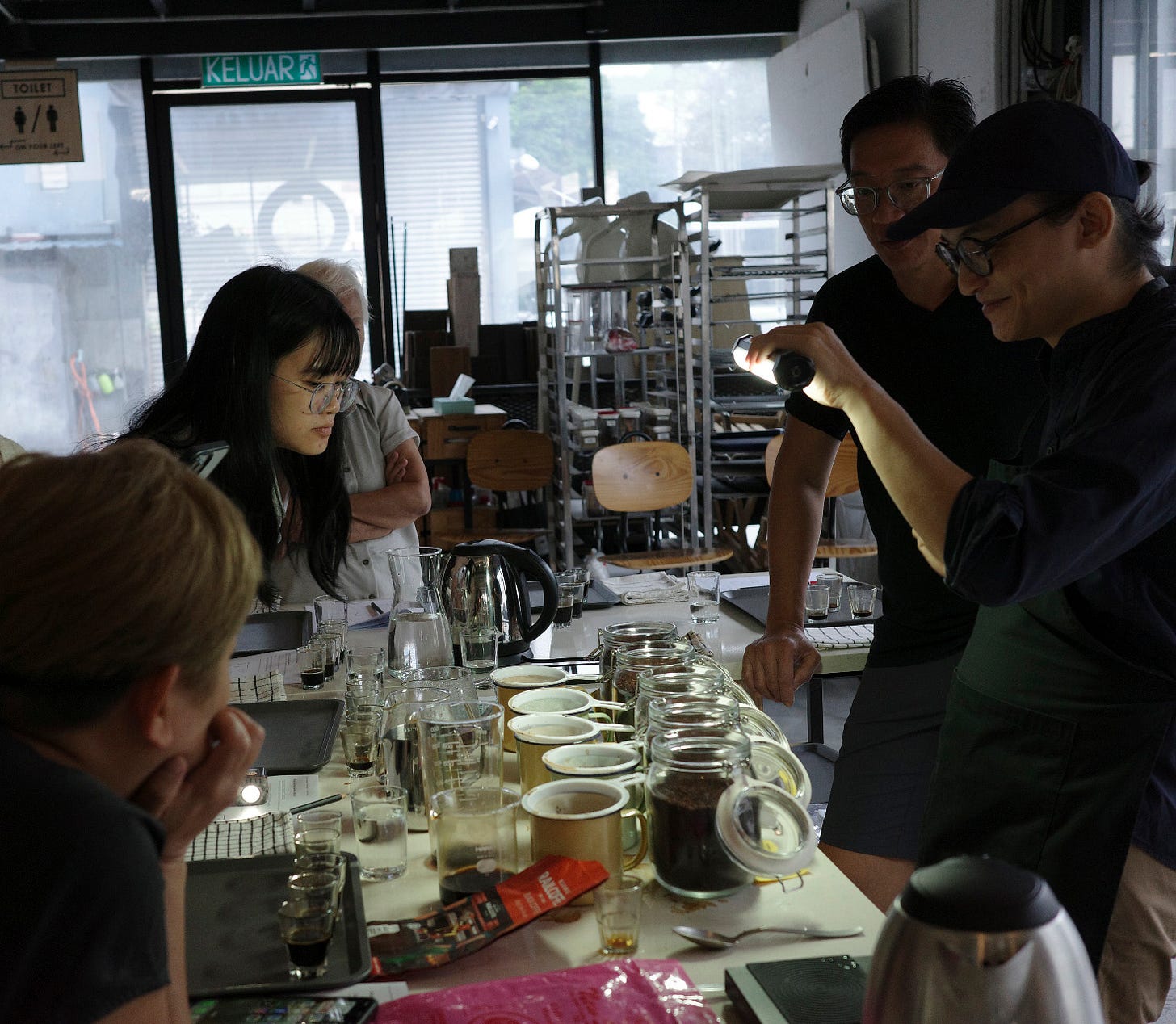
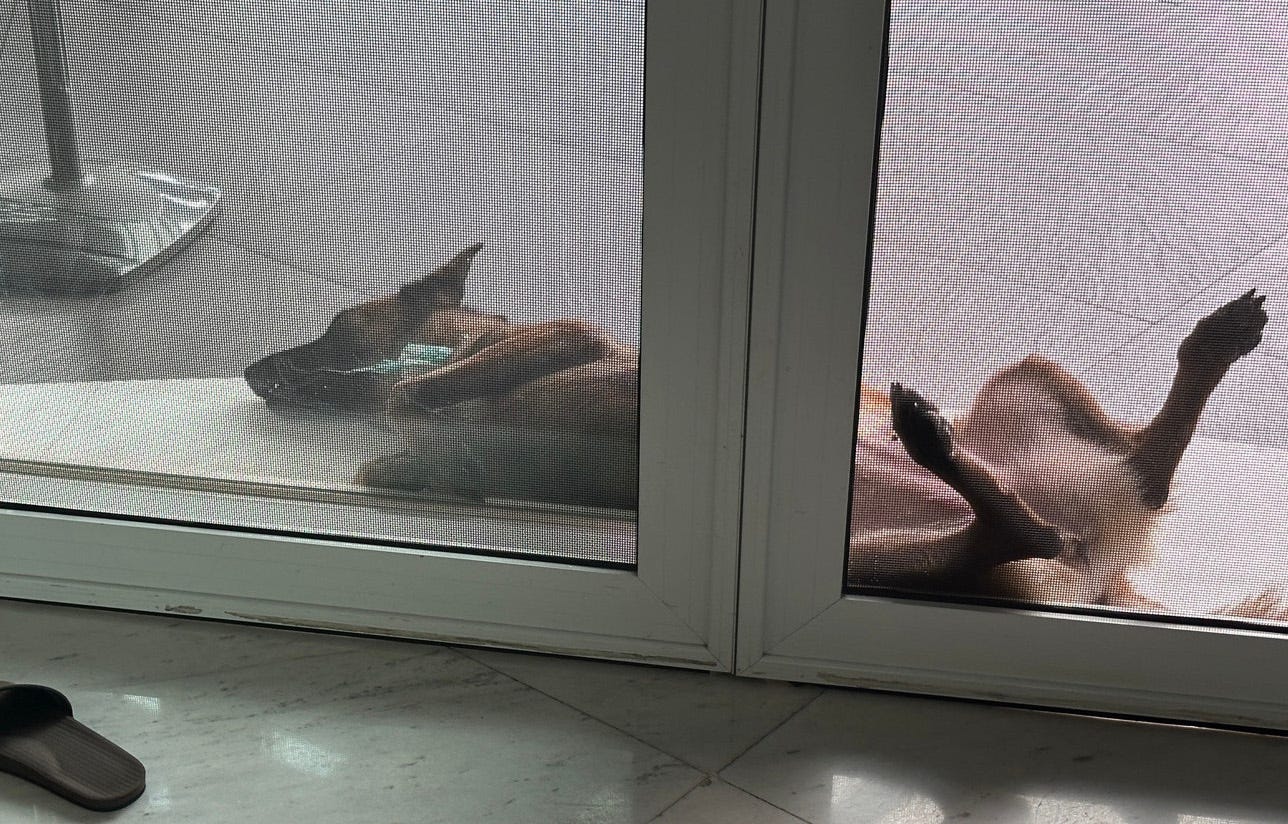
Emily- Thanks for sharing these. KL is so beautiful. I particularly love how morning/afternoon lights hit. The colors are slightly different aren't they in that neck of the woods? Hope you're well, Emily-
That wasn't a wrong turn. :-)